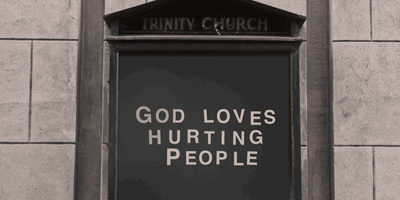One of the problems that has perplexed Christians for centuries has been the problem of evil. Where did it originate? How does it fit into God’s purposes? How should we respond to it? While the answers to these questions can be difficult and even contentious, Christians have generally agreed that we should distinguish between two kinds of evil: natural evil and moral evil. The first category — natural evil — refers to sufferings in our world that are not the direct result of human actions: Hurricane Katrina; the falling of the tower in Siloam (Luke 13:4); COVID-19.
On the other hand, moral evil comes directly from the hands of human beings: things like the Holocaust, or the Mongol invasions, or a gossipy text conversation. With this distinction in mind, how should we respond when we encounter various kinds of suffering and evil?
It probably won’t be a surprise to any reader that suffering — and our response to it — is one of the major themes of the Bible. There isn’t space here to discuss it comprehensively. But in reading through the Psalms recently, I was captivated by Psalm 107.
This psalm consists of four stanzas, each beginning with “Some” (verses 4,10,17,23 ESV) and each of them describing people in distress. Perhaps this reflects the history of the people of God, or perhaps it refers directly to the postexilic period (i.e. when the people of Judah returned from Babylon). Whichever is the case, the four stanzas follow a similar pattern. Each begins with the problem (e.g., “Some wandered in desert wastes . . .”), then records a prayer (e.g., “then they cried to the Lord in their trouble”), followed by God’s provision (“he sent out his word and healed them . . .”), and concluding with praise to God (“Let them thank the Lord for his steadfast love”). What’s interesting is that the first and the last describe circumstances of natural evil (no cause is given for their suffering), whereas the middle two describe moral evil (they “rebelled”), yet the structure of problem, prayer, provision, and praise remains the same.
It’s also important to notice the main theme of the psalm. It can be summed up like this:
By pondering the past works of the Lord, the people of God will grow in wisdom and learn to trust in His steadfast love, even in all kinds of adversity.
Notice verse 43: “Whoever is wise, let him attend to these things; let them consider the steadfast love of the Lord.”
Now, an article of this length doesn’t permit going any deeper into the psalm. But let’s notice one more thing (beyond the Big Idea that I emphasized above) that will hopefully speak to each of us.
This psalm gives us confidence that God hears all those who cry to Him, regardless of the cause of our distress. We all experience suffering at times — maybe it’s from coronavirus; maybe it’s because we didn’t control our tongue (we’ve all been there). It’s easy to think that God will hear and respond when the suffering isn’t our fault. But what about when we really do bear the blame; when we’re suffering because we were foolish or proud or dishonest or selfish? Notice verses 11 and 17 especially. These were people whose behaviour was in exactly that category — moral evil — yet the Lord heard them when they cried to Him, and “he delivered them from their distress”. There was no other reason for His mercy other than His steadfast love! It wasn’t because they were amazing people: it was purely His undeserved grace.
Perhaps you’re wracked with guilt from past sin or past failures. Maybe you haven’t been the Christian you wish you were. Maybe you’re waiting for God to “get even with you.” Perhaps you wonder if God really loves you, or whether He’s just tolerating you and actually finding you to be a supreme annoyance. If that describes you, I want to point you to the Gospel! The good news about God’s grace isn’t just for the unbeliever, it’s what every Christian is “standing in” (1 Corinthians 15:1-2). There’s no other stream to drink from.
You see, we’ve been delivered from danger far greater than the circumstances in Psalm 107. He has truly “sent out his word and healed us” (v.20). Jesus Christ — the Word become flesh — has accomplished God’s purposes of deliverance on the basis of His steadfast love.
He is the final, ultimate way in which God has answered the cries of His people!
His love, which never had a beginning, can also never end. And His grace, which we never deserved in the first place, is our only hope for today as well. So cling to Him. Trust Him. Rejoice in Him. He has promised to hold us until the end.
What love could remember no wrongs we have done;
Omniscient, all knowing, He counts not their sum.
Thrown into a sea without bottom or shore;
Our sins they are many, His mercy is more.
– Matt Boswell and Matt Papa
































